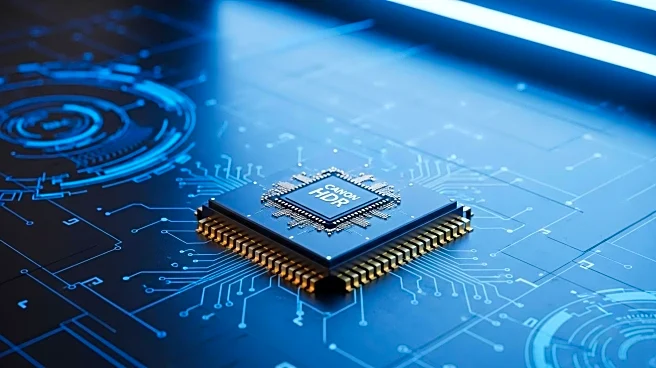What's Happening?
Semtech has announced the release of its fourth-generation LoRa Plus chip family, which offers multi-protocol support and extended range capabilities. This development comes amid the company's integration of Sierra Wireless, a process that has not hindered its innovation in the Internet of Things (IoT) sector. The new LoRa Plus chipsets are designed to support a broader range of AI applications, moving beyond traditional uses like meters and sensors. The announcement was made at The Things Conference in Amsterdam, where Semtech's CEO, Hong Q. Hou, emphasized the company's commitment to advancing LoRa technology. The new chipsets are expected to be available for full production in October, with additional products tailored for specific vertical markets such as metering and tracking.
Why It's Important?
The introduction of the LoRa Plus chip family signifies a significant advancement in IoT technology, particularly in enhancing the capabilities of AI-driven applications. This development is crucial for industries relying on IoT for data collection and analysis, as it promises improved range and efficiency. The ability to support multiple protocols on a single chipset can lead to cost savings and simplified logistics for companies deploying IoT solutions globally. Semtech's increased investment in research and development, as highlighted by a 20% year-over-year increase, underscores the strategic importance of IoT in its business model. This move is likely to strengthen Semtech's position in the competitive IoT market, potentially leading to increased market share and profitability.
What's Next?
Semtech plans to continue its innovation in the IoT space with the development of a fifth-generation LoRa chipset, which is expected to feature more advanced processing capabilities. The company aims to accelerate its efforts to meet the growing demand for higher data rates and smarter sensor applications. As the IoT market expands, Semtech's ongoing advancements could lead to new partnerships and collaborations with other technology firms and industries seeking to leverage IoT for enhanced operational efficiency.
Beyond the Headlines
The expansion of LoRa technology into AI applications highlights a broader trend of convergence between IoT and AI, which could lead to transformative changes in how data is collected and utilized across various sectors. This convergence may raise new ethical and privacy concerns as more data is generated and processed. Additionally, the ability to integrate multiple protocols on a single chipset could drive standardization efforts in the IoT industry, potentially reducing fragmentation and fostering greater interoperability among devices.










